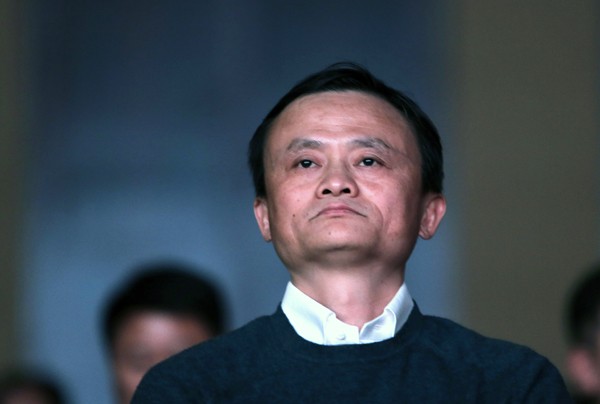Alibaba Group founder and chairman Jack Ma defended Tuesday the Chinese e-commerce firm’s stance against counterfeit goods and expressed regret over French luxury goods manufacturer Kering’s lawsuit against the company.
Paris-based Kering, which owns high-end brands such as Gucci and Yves Saint Laurent, filed a lawsuit on Friday against Alibaba accusing it of aiding the sales of counterfeit versions of its products.
Kering previously dropped a similar complaint in Aug. 2014, following an agreement between the two companies to work together to combat fake goods.
Speaking at a press conference in Seoul, Ma said that his company cooperates with brand owners to fight counterfeiting and employs a sizable staff dedicated to the matter.
"We express regret about the company's choice to sue us and not to cooperate with us to fight against counterfeit goods," Ma said, adding that the suit, which was filed in New York, is "creating internal conflict" rather than cooperation to fight a "common enemy."
The suit accuses Alibaba, China's largest online marketplace, of allowing merchants to sell unlicensed copies of branded goods on its platforms. It also accuses the company of mail fraud and racketeering, including processing payments for goods it knew to be counterfeit.
"This lawsuit is part of Kering's ongoing global effort to maintain its customers' trust in its genuine products and to continue to develop the creative works and talents in its brands," Kering said in a statement.
Alibaba, the world's biggest e-commerce company by sales volume, has launched several initiatives to keep fake goods off its platform following complaints by trademark owners.
The company says it has 2,000 employees dedicated to anti-counterfeiting and consumer protection work and has spent $160 million to combat counterfeiting in 2013-2014.
Ma said that Alibaba, which operates its own online payment system called Alipay, is also in talks with Apple about cooperating in payment systems and possibly other areas. In the past week, Apple CEO Tim Cook revealed to state-run Xinhua News Agency plans to bring the company's wireless payment system Apple Pay to China.



























